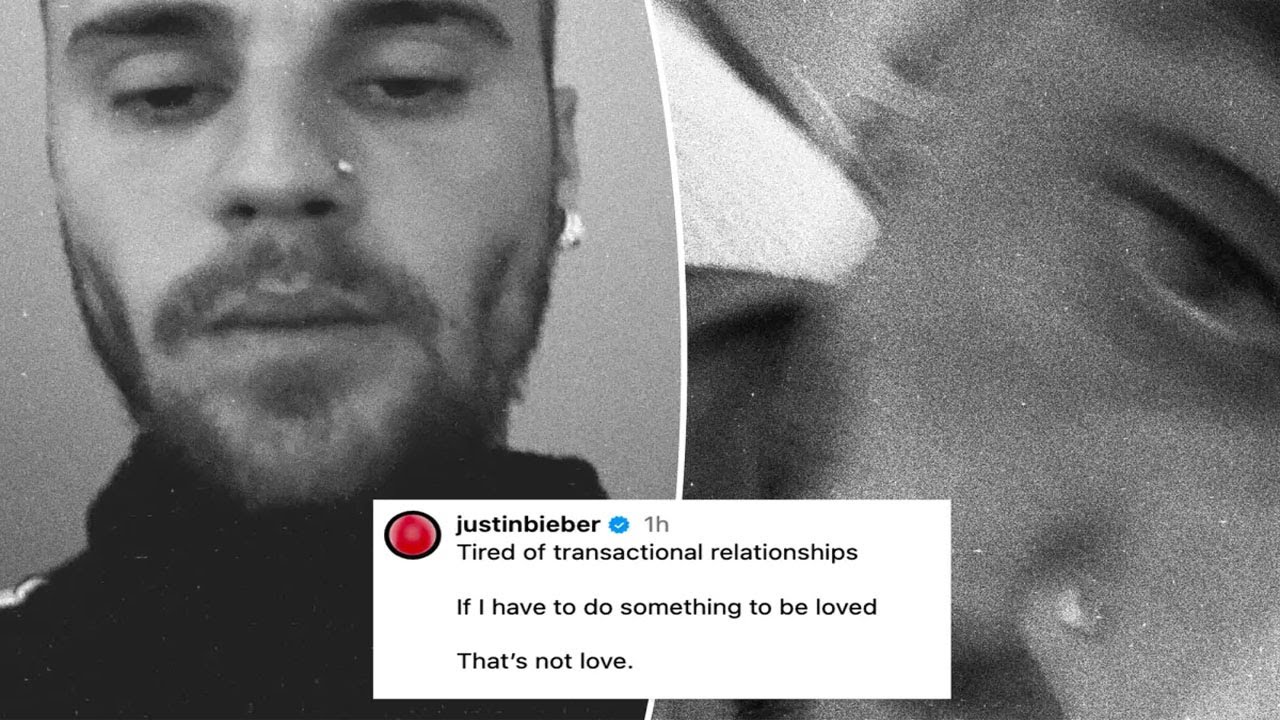Justin Bieber Admits He’s “Tired of Transactional Relationships” Amid Growing Concerns
Justin Bieber, the Grammy-winning pop sensation, has recently taken to Instagram to express his feelings of emotional fatigue when it comes to “transactional relationships.” At the age of 31, Bieber articulated a yearning for love that is founded on unconditional support rather than contingent exchanges. His candid post resonated with his 294 million followers, sparking considerable concern and conversation surrounding his mental health.
Fans React to Bieber’s Vulnerability
Bieber’s admission struck a chord with many of his fans, who flooded the comments section with messages of support and empathy. While some expressed understanding, others voiced their shock at his sentiments, noting that they feel more reflective of someone in their twenties rather than a married father. Commenters debated the nature of love itself, with one asserting that relationships are inherently transactional, suggesting a fundamental truth about human connections.
As a public figure, the pressures of fame can often magnify personal struggles, and Bieber’s latest revelations are no exception. His social media activity has previously been marked by a mix of uplifting posts and unsettling messages, which leave fans guessing about his inner emotional state. Many began to question whether he’s grappling with deeper issues relating to his career, public perception, and personal fulfillment.
Underlying Concerns About Mental Health
Interestingly, this post came on the heels of some controversial behavior in Bieber’s social media interactions, particularly concerning his wife, Hailey Bieber. Critics have pointed out the dissonance between his statements about love and his actions towards Hailey, especially during moments when they were subjected to public scrutiny. This has ignited discussions about the integrity of their relationship and whether Bieber is handling fame and its accompanying pressures in a healthy way.
Bieber also hinted at the use of hallucinogenic drugs in relation to his ongoing struggles, further exacerbating worries among his supporters. Many fans have taken to social media to urge the star to take a break from the online world for his own well-being. This outpouring of concern highlights the significant emotional toll that fame can have on individuals, particularly when they are actively navigating their personal relationships under the watchful eye of the public.
The Impact of Fame on Personal Relationships
Justin Bieber’s experiences raise critical questions about how fame influences personal interactions and mental health. As countless public figures have publicly struggled with similar issues, his situation serves as a poignant reminder of the challenges many face in their personal lives, especially when exposed to the rigorous demands of a celebrity lifestyle. Social media often becomes a double-edged sword, providing a platform for connection while also exposing vulnerabilities that can lead to public speculation and concern.
Furthermore, the dichotomy of celebrity life—being adored by millions while simultaneously facing private battles—can create a sense of isolation. This paradox can make it difficult for stars like Bieber to maintain healthy, fulfilling relationships. The scrutiny he faces can generate feelings of being misunderstood, and his longing for deeper connections often clashes with the transactional elements that can infiltrate both personal and professional relationships.
In conclusion, Justin Bieber’s admissions about feeling worn down by transactional relationships underline the complexities of human connections, particularly for those in the public eye. As fans continue to rally behind him, it’s clear that the conversation around mental health and the nature of relationships is more vital than ever. If you’re experiencing similar feelings or know someone who might be, consider reaching out to a friend, a mental health professional, or starting your own dialogue about the importance of nurturing authentic connections free from transactional expectations. Remember, love should be mutual and unconditional, transcending beyond what one can offer to the other.





